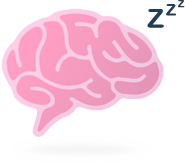Home
Pain of Paying definition
The Pain of Paying principle, first explored by Prelec & Loewenstein in 1998, explains the psychological link between payment and pleasure (or lack thereof) for the experience or product you are paying for. The simple fact is that people don’t like to part with their money and so making payment can reduce the pleasure taken from making a purchase. It has been proven that spending money actually activates the areas in our brain that are associated with physical pain and feelings of disgust.
Therefore, the more strongly we feel this “pain of paying” when we spend money for something, the less we will enjoy it and it can affect our decisions to make purchases. Studies have shown that certain forms of payment hurt more than others: the more evident, tangible or transparent the payment is, the less we are able to enjoy the pleasure of our purchase. We feel this “pain of paying” less when we pay by credit card or when there is a gap between paying and the time of receiving or using the purchase. Inversely, we feel it more when we have to pay for something immediately or by cash as it really draws attention to the amount that something is costing us.
Automatic payment systems available for online purchases are an example of one way in which some brands are trying to reduce the pain of paying in order to therefore make more sales. Registering your customers’ payment details is an effective way of limiting the feeling of making payment and encouraging more purchases. For example, when you buy music or a movie on iTunes, there is no mention of the fact that you are paying, you simply click on the “download” button and, as your bank details are already registered, payment is automatic and therefore less visible and tangible.

Oops, you have reached your limit of 1 free tactic per hour
To get unlimited access to our 250+ tactics,
Join our FREE mailing list
Or wait 00:59:59





